- Home
- slideshows
- miscellaneous
- 15 candidates who won the Iowa caucus, but lost the presidency - and the 3 presidents who won both
15 candidates who won the Iowa caucus, but lost the presidency - and the 3 presidents who won both
In 1972, Democrat Sen. Edmund Muskie won the Iowa caucuses, but didn't get the party's nomination. A number of factors led to his faltering campaign, but one event that's often referred to was a press conference where he started crying. He claimed it was melted snow. Regardless, the outburst hurt his chances.

In 1976, Republican Gerald Ford won the Iowa caucuses. It was the first time Republicans held a caucus in Iowa. Ford got the party's nomination, but he lost to Jimmy Carter in the presidential race.
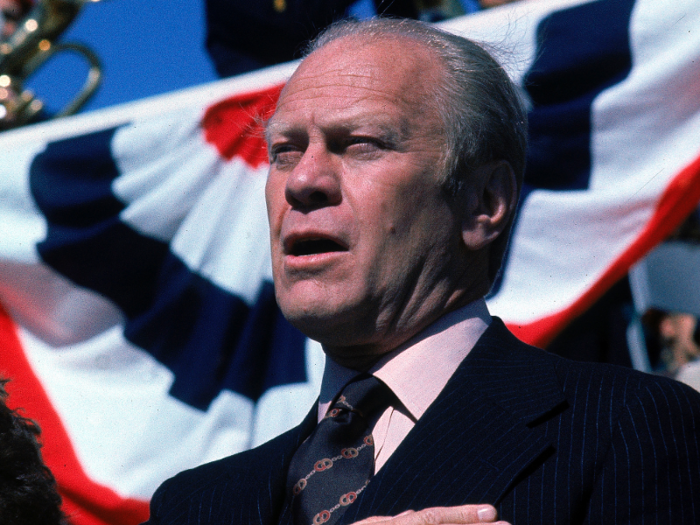
Source: The Atlantic
In 1976, Democrat Jimmy Carter won the Iowa caucuses, with 27% of the vote. He got the Democratic nomination, and became president. According to The Atlantic, his early victory, built upon intense local campaigning, changed how Iowa impacted a presidential campaign. Before winning Iowa, he wasn't taken seriously, but after he won, the media portrayed him as a real candidate.
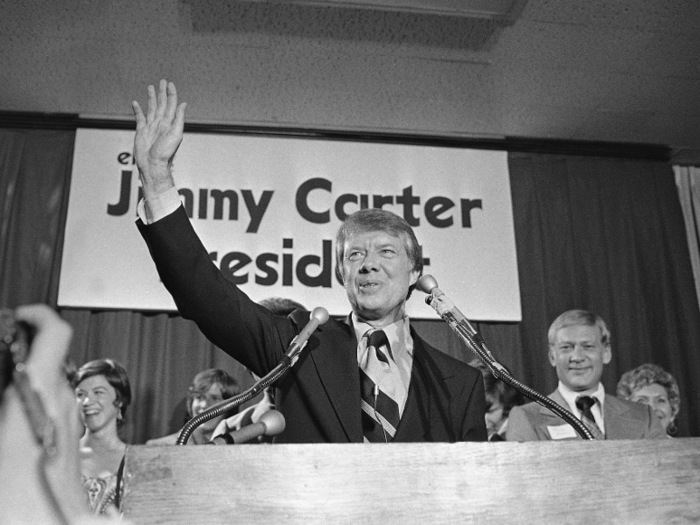
Sources: The Atlantic, The Conversation
In 1980, Jimmy Carter won the Iowa caucuses again with 59% of the vote. He got the Democrat nomination, beating Ted Kennedy, but he lost the presidential race to Ronald Reagan.
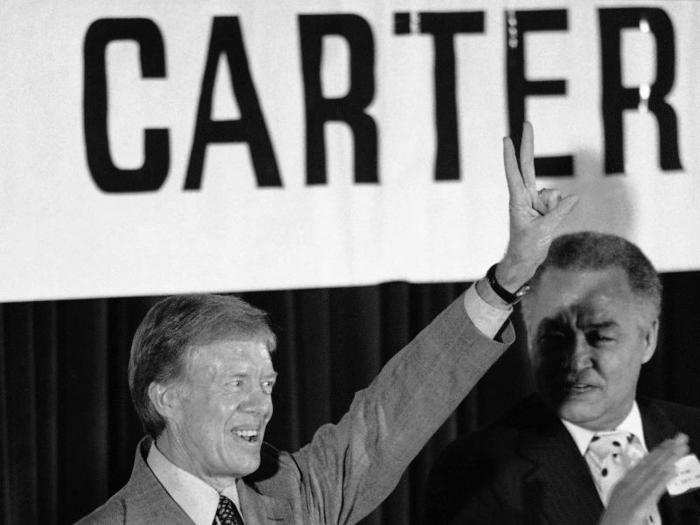
Sources: CBS News, The Guardian, Los Angeles Times
Also in 1980, Republican George H.W. Bush won the Iowa caucuses, beating Reagan by about 2,000 votes. He called it the "Big Mo," but he didn't get the party's nomination. Reagan called his loss in Iowa the "kick in the pants" he needed to win.
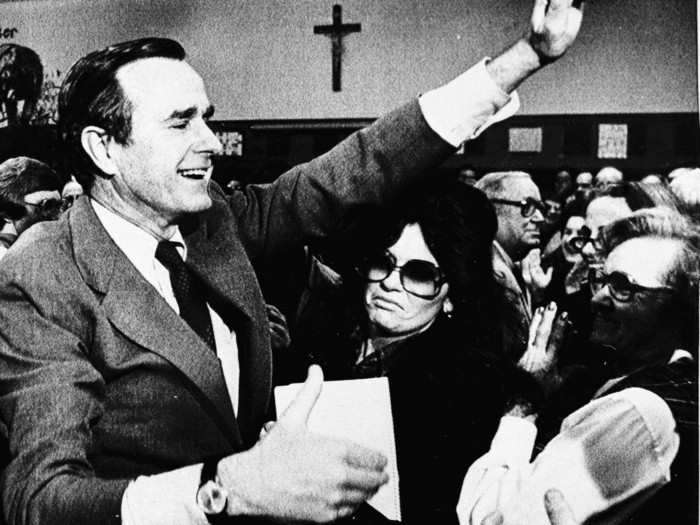
Sources: The Week, The New York Times
In 1984, Democrat Walter Mondale comfortably won the Iowa caucuses with 48% of the vote. The New York Times called it "the most commanding lead ever recorded in a presidential nominating campaign by a non-incumbent." He got the Democratic nomination, but lost the presidential race to Reagan.
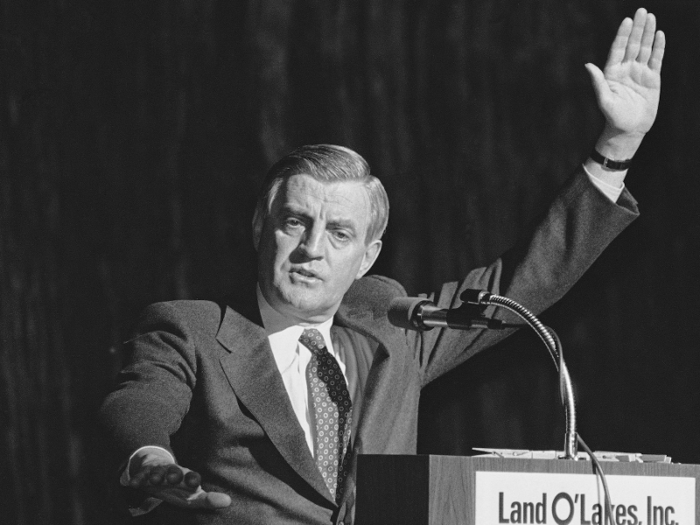
Sources: Slate, Washington Post
In 1988, Democrat Dick Gephardt won the Iowa caucuses. It didn't come easily. He spent 150 days campaigning across the state, and even had his mom move to Des Moines. He later dropped out of the race, after running out of money and public support. Michael Dukakis got the Democrat nomination.

Sources: Los Angeles Times, Politico
On the Republican side in 1988, Sen. Bob Dole won the Iowa caucuses with 37% of votes. According to NBC News, he "crushed" Bush in Iowa. But Bush regained momentum, and Dole didn't get the Republican nomination.
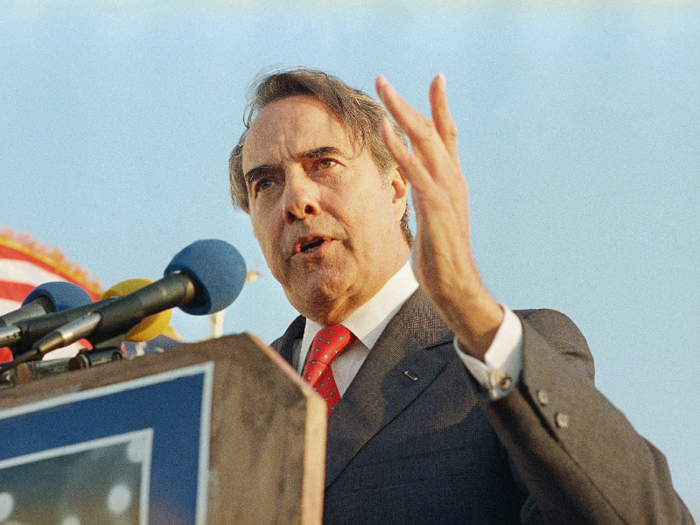
In 1992, Democrat Tom Harkin won the Iowa caucuses with more than 76% of votes. He had a singular advantage, since he was Iowa's senator and had lived there for half a century. But by March, his campaign was out of money, and he dropped out of the race. Bill Clinton went on to become president.
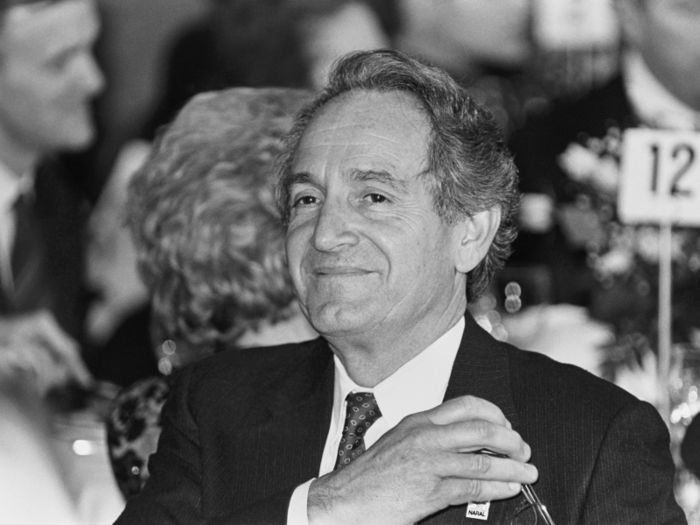
Sources: Los Angeles Times, The New York Times, Los Angeles Times
In 1996, Republican Bob Dole won the Iowa caucuses for a second time. It was a weaker victory than last time, yet Dole got the Republican nomination. He later lost to Clinton in the presidential race.

Sources: CNN, The New York Times
In 2000, Democrat Al Gore won the Iowa caucuses, carrying all 57 primary and caucuses and securing the Democrat nomination. But he lost the presidential race to George W. Bush, in a close race that resulted in a 36-day recount, before Gore withdrew.

On the Republican side in 2000, George W. Bush won the Iowa caucuses with about 31% of votes. He secured the Republican nomination, and became president.

Sources: The New York Times, CNN
In 2004, Democrat John Kerry won the Iowa caucuses. He ousted Howard Dean, who had been the frontrunner until then, and got the party's nomination. Commentators said Kerry won because voters thought he was the best bet to beat George W. Bush. But he lost to Bush in the presidential race.

Sources: The New York Times, NPR
In 2008, Republican Mike Huckabee won the Iowa caucuses with 34.4% of votes. He won seven other primaries, but lost the Republican nomination to former Sen. John McCain — who had come in fourth in Iowa.
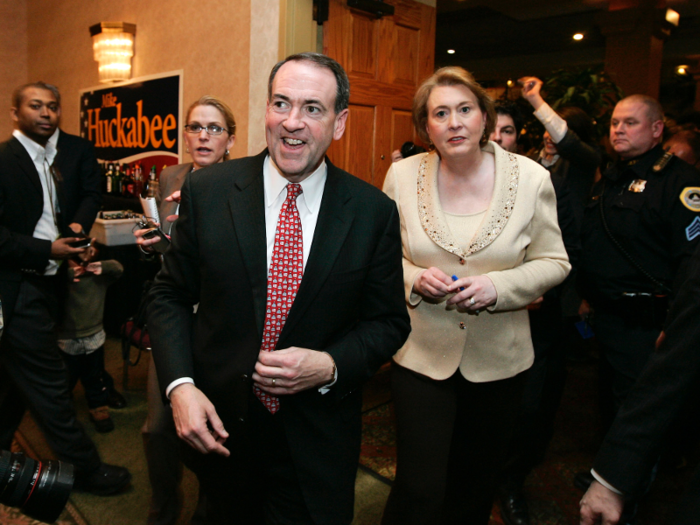
Sources: Washington Post, NBC News, The New York Times
In 2008, Democrat Barack Obama won the Iowa caucuses, with 38% of votes. Before the win, he was trailing Hillary Clinton, but the victory was enough to bolster his campaign. He won the party's nomination, and became president in 2008.

In 2012, Republican Rick Santorum won the Iowa caucuses, with 24.6% of votes. He narrowly beat Mitt Romney by 34 votes. But he dropped out of the race in April, and Romney got the party's nomination.
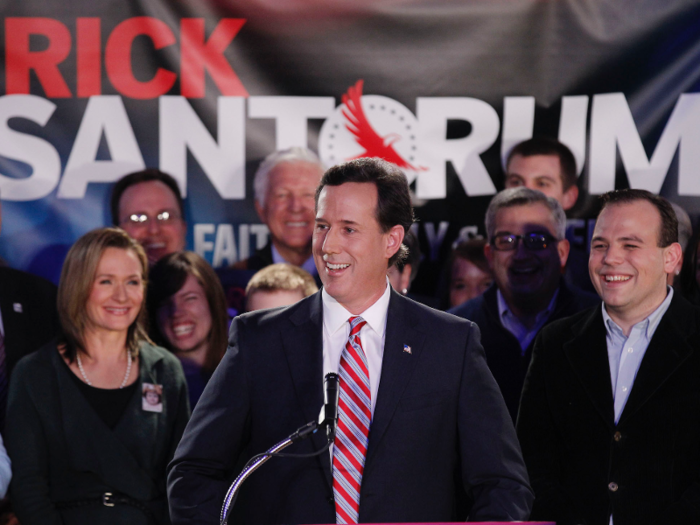
Sources: Washington Post, Washington Post
In 2016, Democrat Hilary Clinton won the Iowa caucuses beating Bernie Sanders by the smallest margin ever — 0.3%. She was the first woman to secure the Democratic party's nomination, but lost in the presidential race to Donald Trump.

Sources: Wall Street Journal, The Guardian
In 2016, Republican Ted Cruz won the Iowa caucuses, with nearly 28% of votes. He won the state through heavy grassroots campaigning. Cruz beat Trump by 4%, but Trump got the Republican nomination, and went on to become president.
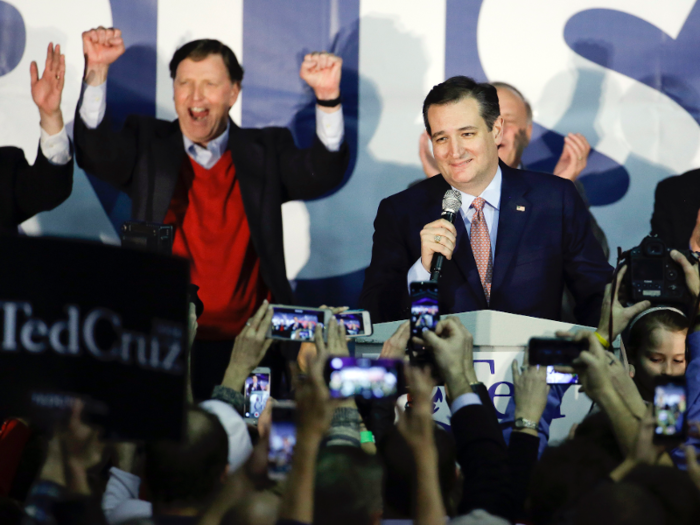
Sources:The New York Times, Politico, Time
Popular Right Now
Popular Keywords
Advertisement